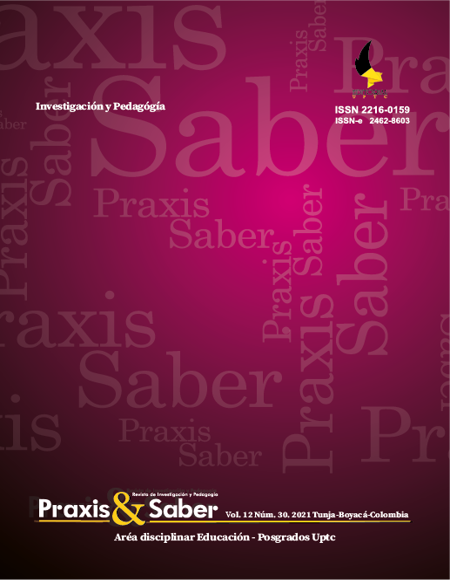Argumentation of future chemistry teachers on anorexia addressed as a socio-scientific issue

Abstract
This article analyzes the argumentation of chemistry trainee teachers through a socioscientific issue [SSI] on anorexia associated with the amino acid metabolism. The study followed a qualitative microethnographic methodology. We used written and oral records obtained during the implementation of the sequence based on the social implications of anorexia. Toulmin’s argumentation model was used to support and analyze the results. The degree of argumentation achieved was determined using the argumentative levels. The results obtained indicate that the predominant levels of argumentation of the trainee teachers are 0 and 1, which is why argumentation should be included in a permanent and transversal way in curricula for the training of future chemistry teachers so that they will be able to enhance the processes of argumentation. Regarding their position on the use of a controversial SSI such as anorexia, the trainee teachers show a broad understanding of the disease, which contributes to the improvement of critical thinking.
Keywords
argumentation, chemistry teaching, teacher training, educational innovation
References
Álvarez, A. (2008). La etnografía como modelo de investigación en educación. Gazeta de
Antropología, 1, 1-16.
Driver, R., Newton, P., & Osborne, J. (1997). Establishing the norms of scientific argumentation in classrooms
[Ponencia]. ESERA Conference, Roma, Italia.
Driver, R., Newton, P., & Osborne, J. (2000). Establishing the norms of scientific
argumentation in classrooms. Science Education, 84(3), 287-312.
Gallo, D. (2013). Argumentación en profesores de química en formación inicial a partir
de una secuencia de enseñanza sobre metabolismo de aminoácidos [Tesis de Maestría,
Universidad Pedagógica Nacional]. Repositorio Institucional UPN. http://repository.
pedagogica.edu.co/handle/20.500.12209/290
Martínez, L. (2012). Questões sociocientíficas na prática docente: ideologia, autonomia e
formação de professores. Editora Unesp.
Martínez, L. (2014). Cuestiones sociocientíficas en la formación de profesores de ciencias:
aportes y desafíos. Tecné, Episteme y Didaxis, 36, 77-94.
Martínez, L., & Parga, D. (2013). Discurso ético y ambiental sobre cuestiones sociocientíficas:
aportes a la formación del profesorado de ciencias. UPN.
Marafioti, R. (2006). Argumentación. Análisis, evaluación, presentación. Biblos.
Moreira, M. (2002). Investigación en educación en ciencias: métodos cualitativos. Universidad
de Burgos, Departamento de Didácticas Específicas.
Moreno, D., & Martínez, L. (2009). Argumentación en estudiantes de educación media y
habilidad del profesor para su desarrollo: una discusión en el aula sobre implicaciones
sociales y ambientales de la producción de etanol. Nodos y Nudos, 3(27), 30-42.
Murillo, J., & Martínez, C. (2010). Investigación etnográfica. http://www.rinace.net/javier.
murillo/InvestigacionEE/Presentaciones/Curso_10/I_Etnografica_Trabajo.pdf
Liakopoulos, M. (2002). Análise argumentativa. En M. Bauer, & G. Gaskell (Orgs.), Pesquisa
qualitativa com texto, imagem e som. Um manual prático (2ª ed., pp. 218-243). Vozes.
Leach, J., & Scott, P. (2002). Designing and evaluating science teaching sequences: an
approach drawing upon the concept of learning demand and a social constructivist
perspective on learning. Studies in Science Education, 38, 115-142.
Ratcliffe, M. (2009). The place of socio-scientific issues in citizenship education. En A. Ross
(Ed.), Human Rights and Citizenship Education (pp. 12-16). CiCe.
Sadler, T., & Fowler, S. (2006). A threshold model of content knowledge transfer for
socioscientific argumentation. Science Education, 90(6), 986-1004.
Sangiogo, F., Woyciechoswsky, R., Albrecht, S., & Maldaner, O. (2011). A pesquisa
educacional como atividade curricular na formação de licenciandos de química. Ciência
& Educação, 17(3), 523-540.
Solow, D. (2006). Introducción al razonamiento matemático. Limusa.
Solbes, J. (2013). Contribución de las cuestiones sociocientíficas al desarrollo del
pensamiento crítico (I): introducción. Revista Eureka sobre Enseñanza y Divulgación de
las Ciencias, 10(1), 1-10.
Suárez, M. (23 de junio de 2009). Las voces de la anorexia. El Espectador. https://www.
elespectador.com/noticias/actualidad/las-voces-de-la-anorexia/
Toulmin, S. (2007). Los usos de la argumentación. Península.
Zenteno, M., & Garritz, A. (2010). Secuencias dialógicas, la dimensión CTS y asuntos
sociocientíficos en la enseñanza de la química. Revista Eureka sobre Enseñanza y
Divulgación de las Ciencias, 7(1), 2-25.
Zohar, A. (2007). Science Teacher Education and Professional Development in
Argumentation. En S. Erduran & M. Jiménez (Eds.), Argumentation in Science Education
(pp. 245-266). Springer.
Zubieta, L. (1982). Etnografía y política educativa. Revista Colombiana de Educación, 10, 107-115.
